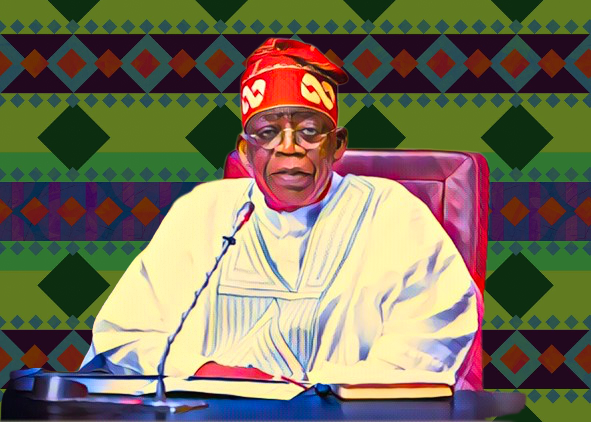When President Bola Tinubu took office on May 29, 2023, the headline inflation rate was 22.41%. One year into his four-year term, it has climbed 11.28 percentage points to 33.7%. However, Nigerians report that the cost of essential goods has more than doubled.
For example, the price of a sardine can has increased from 300 naira to 1,200 naira in a year, a tin of Peak milk has risen from 250 naira to 700 naira, spaghetti has tripled from 300 naira to 900 naira, and a measure of beans has quadrupled from 350 naira to 1,400 naira. Frozen fish now costs 3,000 naira, up from 700 naira, and a batch of 10 tomatoes that sold for 250 naira now costs 2,500 naira.
Despite these challenges, the nation’s gross domestic product (GDP) growth rate edged up from 2.51% last year to 2.98% as Tinubu marked his first year in office.
The monetary policy rate, which targets inflation, increased from 18% to 26.25% over the year, while public debt decreased from 97.34 trillion naira to 87.38 trillion naira. However, foreign reserves dipped to $32.74 billion from $35.09 billion.
Bongo Adi, a professor of economics at Lagos Business School, pointed out that reducing the purchasing power of Nigerian workers discourages investment. “With the removal of the petrol subsidy and the liberalization of the foreign exchange market, workers’ earnings have remained stagnant. Which investor will bring money into an economy where the people lack the purchasing power to buy what has been produced?” Adi asked.
Although the government was compelled to liberalize the foreign exchange market and remove the petrol subsidy due to reduced petrodollar inflows, Adi criticized the lack of policies to mitigate the shocks of these reforms.
Adi also questioned why the government hasn’t capitalized on the natural gas opportunities presented by the geopolitical tensions following the war between Russia and Ukraine and the ongoing conflicts in the Middle East.
Public analyst Olufemi Awoyemi described the “bold and daring” policies promised by Tinubu in his inaugural speech as having turned into a nightmare, as Nigerians’ purchasing power has plummeted.
Another public analyst, Kalu Aja, noted that although Tinubu’s initial speech was appealing and reassuring, the administration has little to show for it after one year. “Reforms announced were reversed secretly, programs were poorly implemented, and it seems there are no competent leaders present,” Aja commented.
He urged the President to return to his political roots and lead an open, inclusive government.
In efforts to stabilize the foreign exchange market at a target rate of 1,200 naira, the Central Bank of Nigeria has reportedly sold dollars below the market rate, influenced by an anticipated $1.3 billion Non-Deliverable Forward that matured yesterday.
The Ministries of Power, Finance, Petroleum, and Agriculture have ranked low in performance over the last year, according to a poll by the Africa Poling Institute titled ‘Nigeria Speaks’, which assessed the Tinubu administration’s first year. Hunger, poverty, and dissatisfaction were the major concerns among Nigerians surveyed.
The decline in SMEs, from 246,200 in 2020 to 170,098 in 2022, poses a significant challenge to Nigeria’s goal of achieving a $1 trillion economy. SMEs are crucial for employment, GDP contribution, and fostering innovation and entrepreneurship.
Source: The Guardian


